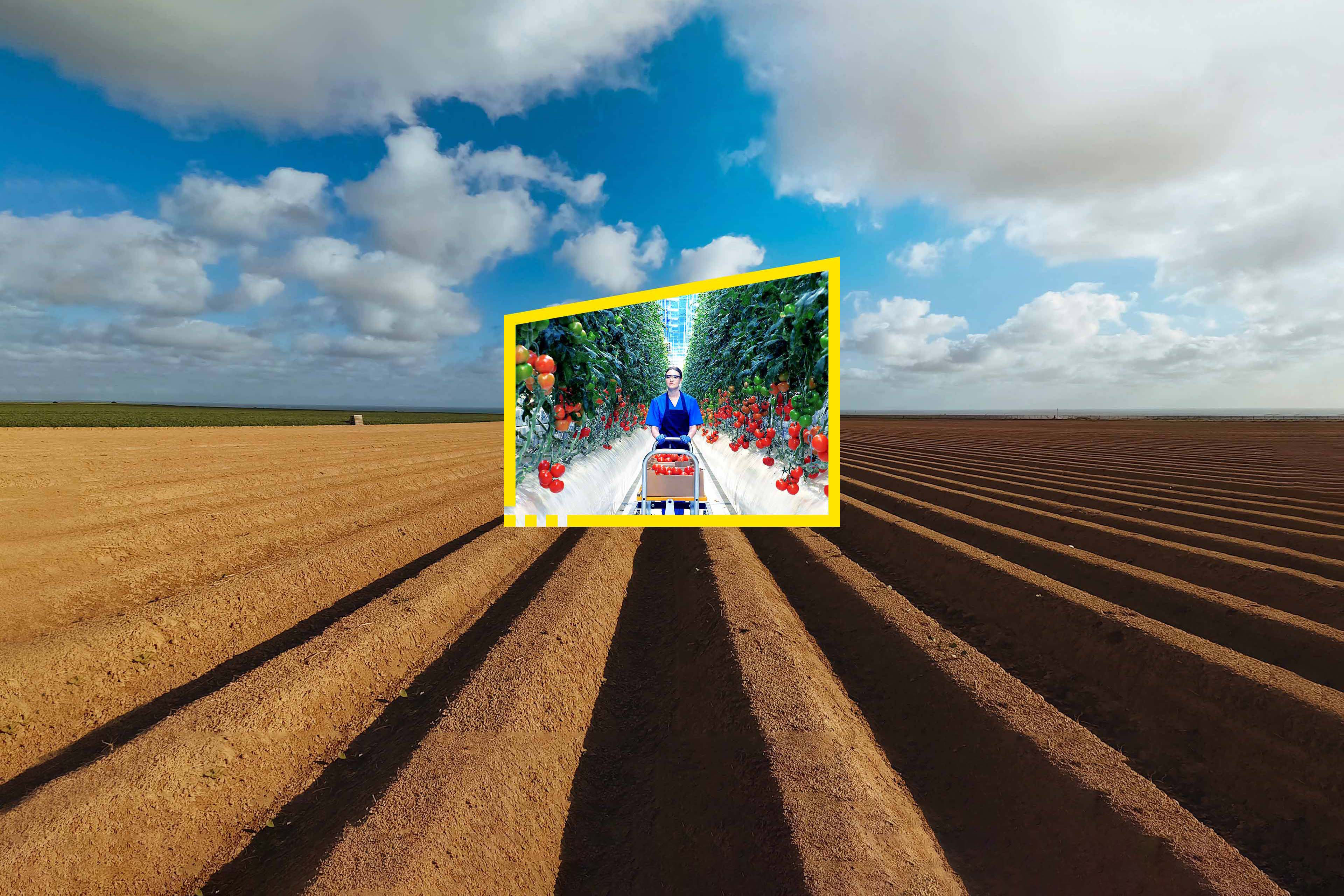EY refers to the global organization, and may refer to one or more, of the member firms of Ernst & Young Global Limited, each of which is a separate legal entity. Ernst & Young Global Limited, a UK company limited by guarantee, does not provide services to clients.

Food for the soul
When we hear the word catering, most of us probably first think of food, but immediately afterwards, many Slovenians are reminded of the Jezeršek House of Culinary Arts. This is a family-run business with 30 years’ experience of catering and organizing entertainment. Annually, they are involved in approximately 1,500 events and are undoubtedly number one in their field in Slovenia. It has become appropriate to prefix their business description with elite, because as true masters of their profession, they are present at all prestigious national diplomatic and entertainment events. This has led to them serving their culinary delights to the UN SecretaryGeneral Ban Ki-moon, numerous well-known actors and many other representatives of the state and entertainment industry. They have ambitious plans, not only to maintain their status as the leading company in Slovenian hospitality, but also to duplicate this success across southeast Europe, and break into the EU top 10. “This will be achieved by continuing to provide innovative and creative culinary solutions, fulfilling the requirements of individual customers. Our aim is to exceed customer expectations, by giving them a service which goes beyond just value-for-money. In a service industry, the most important factor is the human being,” assures Martin Jezeršek, the company’s General Manager.
We connect the same locations and food, but present them in completely different ways. It is a unique kind of theatre

Each event should generate another
The Jezeršek family history has been linked to the hospitality industry from the very beginning. Franc Jezeršek was head of school workshops at the catering school in Ljubljana, while his wife Sonja worked as the teacher-expert at the same institute. His ambitions soon surpassed the school demands and in 1981, at the age of 35, he decided, more or less overnight, to go it alone. “At that time, centralized catering was very important and each factory had to take care of its workers’ meals. I tried in vain to explain to the school staff that it could be a lucrative business. Ultimately, when push came to shove, it was just me, my wife and our colleague, Alenka, who ended up cooking and delivering meals to nearby factories and craft shops. Those were the times!” Franc fondly remembers. At a municipal festival, they cooked goulash for 100 people and within only a few years, an abundance of orders changed and expanded their business. “Catering was a niche market that no one was willing to take on.
We were the ones who developed it and for the first 10 years, we were the only catering providers in the market. I have always maintained that each event must generate another - there is always someone present, who will need our services tomorrow, in a few months or a year from now,” Franc confidently asserts, adding that the independence of Slovenia provided even more business and additional momentum to the company. In 1994, when they were already well-established, they built the House of Culinary Arts, in Sora, near Medvode. This ambitious project has been a great success and continually expanded until 2007, when they bought their most recognizable building - Dvor Jezeršek. “We bought and restored a dilapidated farmhouse just before the onset of the crisis, and this required restructuring of the company. Thanks to determination and clear vision, we emerged stronger than before,” says Franc, proudly. Today, in addition to the two locations, the company has its own restaurant at Bled Castle, where in addition to enjoying the wonderful views you can also give your taste buds a treat.

The Jezeršek brothers had to work for their pocket money
The Jezeršek family has four sons and each of them has dedicated their life to the family business. They are quick to confirm that none of them was forced into this; quite the opposite, the family tried to persuade Martin, the youngest, to go to college and study something not connected to the hospitality industry. “The fact that all four of us joined the family business happened completely by accident,” says Luka, Head Chef. Sonja adds that the children spent most of their time with their parents and it was only natural that everyone became involved in the organization of events - from the preparation and cooking, to cleaning. “Although those were very busy times, I always found time to be with our four young children. We made uniforms for them so they came to the events dressed as chefs and presented themselves to the guests,” explains Sonja. This way they all felt involved in the business.
The Jezeršek family didn’t provide pocket money to their children; instead, each of their four sons had to earn their own money by helping in the family business. Upon the transfer of ownership, it was unanimously decided that the company would not be broken up into individual facilities and distributed among the children. Instead, it remains a single unit, with individual functions divided among the four sons. At the same time, the parents completely withdrew from the ownership, although their sons occasionally seek their advice. “Naturally, my parents continue to be involved in the family business. Dad often explains his point of view whilst adding that we should do as we think best,” adds Jure, Business Director of Jezeršek Catering.
Their joint success is based on efficient and productive communication. “One of the main advantages of a family business is that the management is able to express their views openly. At times this may lead to rather “forthright” exchanges; nevertheless, we are able to resolve any issues through discussion,” says Martin, explaining their open communication.

Five events in five different countries in a single day
In addition to the Jezeršek brothers, the management of the company is composed of a circle of close associates. Prior to the transfer of ownership, the family discussed the possibility of sharing ownership with employees. However, partly because of lack of experience, but primarily due to the four sons’ devotion to the family business, they decided otherwise. Work is organized in such a way that none of them is indispensable. As Franc says, in the past he used to be present at every wedding and led the protocol; however, today, due to the large volume of work, this is no longer possible. “In the catering industry, good food and drink are the essential ingredients! Quite simply, this is the ticket to the hospitality market. However, the essence is in the level of energy. To give an example, in a single day we worked on five events in five different countries,” they proudly tell us.
The company’s philosophy is to empower employees so that they can independently and successfully run individual events, without Jezeršek family involvement. “The Jezeršek family is not just the six people who bear that name, but also all the people who work in and identify with the company. At each event we have an event leader, who is also the boss and we all listen to them,” adds Franc. Around 70 people cooperate with the Jezeršek company on a regular basis. The volume of work is such that in the first half of this year, they sought cooperation with as many as 250 external collaborators. Fast turnover and adaptation to the needs of the market is something they are used to, as theirs is an established business: “Today, it is almost impossible to start afresh in the hospitality industry. You can get an order for catering for 1,000 people tomorrow, but if you do not have the right experience...” As Luka says: “The company’s biggest advantage is its diversity of jobs, and because each and every one of the associates can be sited in a location where he or she will contribute most.”

“Although those were very busy times, I always found time to be with our four young children. We made uniforms for them so they came to the events dressed as chefs and presented themselves to the guests,” explains Sonja.
They served 75,000 guests in 17 days
Last year, one fifth of the five million euro income was contributed by strong exports, which is an exceptionally high percentage for a service industry. This year’s plans are just as ambitious, although they are wary of the fact that in their business, investment cycles vary greatly and as few as three major events can either generate or wipe out significant revenue. “Variances between the best and worst month range around 1:10, while the weekly turnover stands at 1:100. The differences are vast,” points out Jure, adding that from this point of view, experience is of the essence. “In catering, the difference is that you are selling capacity, and adaptability to different situations combined with 35 years of experience are hugely important. Our business has developed through us overcoming a variety of challenges; we take time to prepare for those challenges and we have come to see them as the greatest of joys. For example, during the Eurobasket 2013, we served 75,000 guests in 17 days.”

“Catering is a very specific activity, as customers often have only a very vague idea of the goal they are striving to achieve. Thus, they are a source of inspiration to us, since their ideas can be extremely versatile and innovative. One of the problems we face is the small size of our region, because the same faces appear at different gala events and people can quickly get bored with the same dishes and presentation. We connect the same locations and food, but present them in completely different ways. We are a unique kind of theatre,” says Jure, completing his thoughts. Jezeršek Catering creates this theatrical performance with a team of highly-qualified experts, bursting with creativity in the field of culinary arts and hospitality. Their creative team includes two master chefs, a master of catering service and a graduate of the elite Swiss Ecole Hôtelière de Lausanne. Additionally, they were seventh-ranked at the Georges Baptiste Cup in Tokyo and have two members of F&B Master Title Evaluation Committee, which is the highest level of professional education in the hospitality industry in Slovenia, a winner of the lifetime achievement award in the field of hospitality and a judge in the popular TV show MasterChef Slovenia. We can be sure that another title will soon be added to this long list of achievements.
Luka, Martin, Jure and Rok Jezeršek , owners
Company name: Jezeršek d.o.o.
Number of employees (2015): 21
Net sales revenue (2015): €4.9 million
Interviewees:
Franc and Sonja Jezeršek, Company Founders
Martin Jezeršek, General Manager
Jure Jezeršek, Business Director in charge of catering Luka Jezeršek, Head Chef
Rok Jezeršek, Head of Technical Support and Purchasing
Summary
Jezeršek Catering in a nutshell: reliability, flexibility, quality, diligence, respect.



